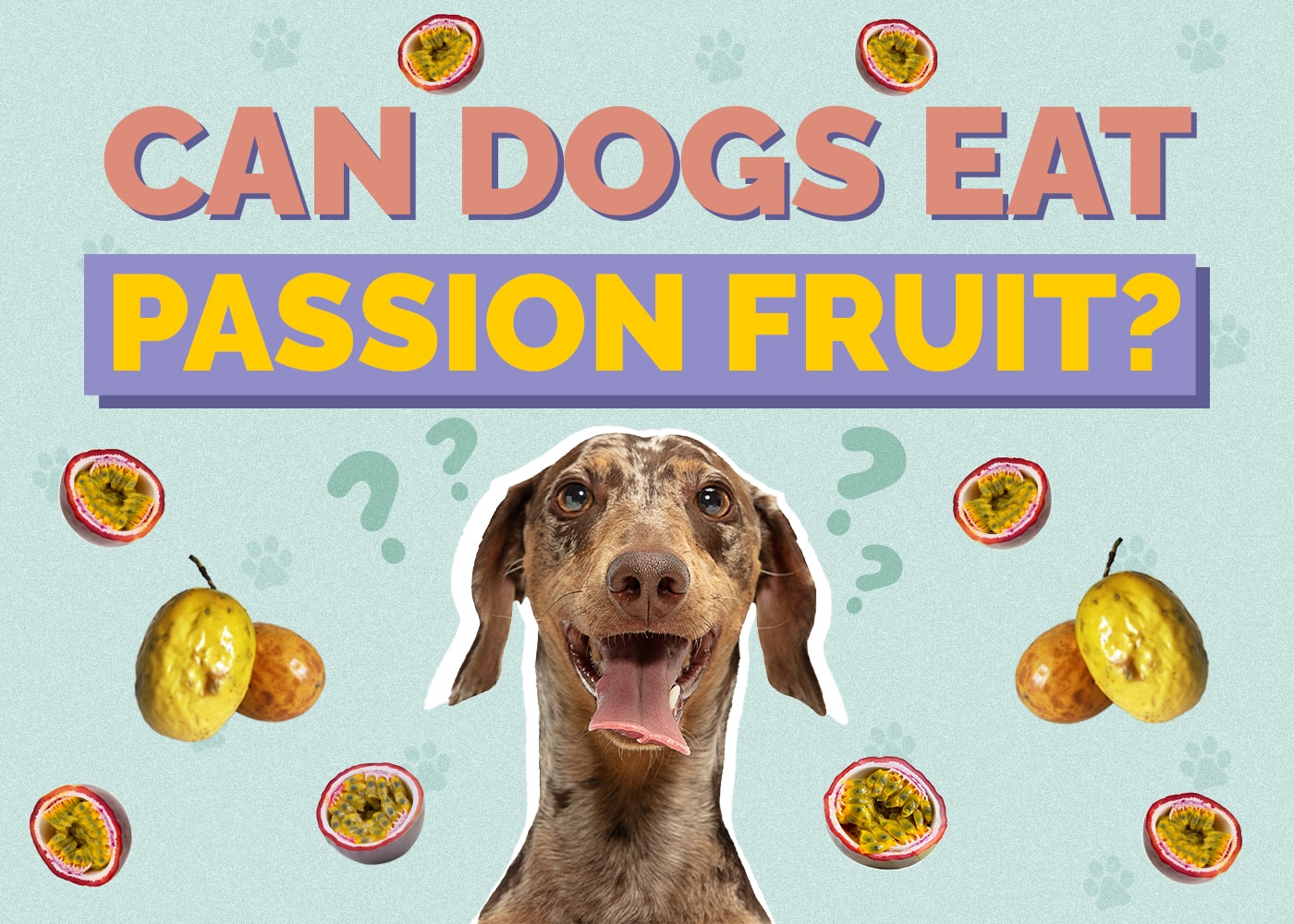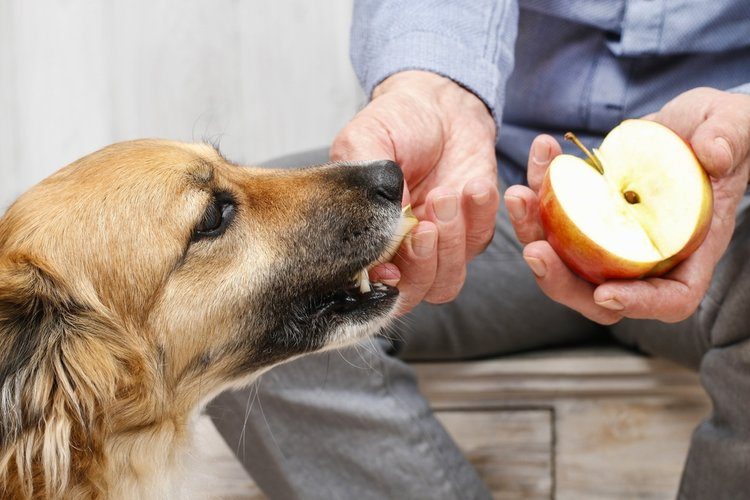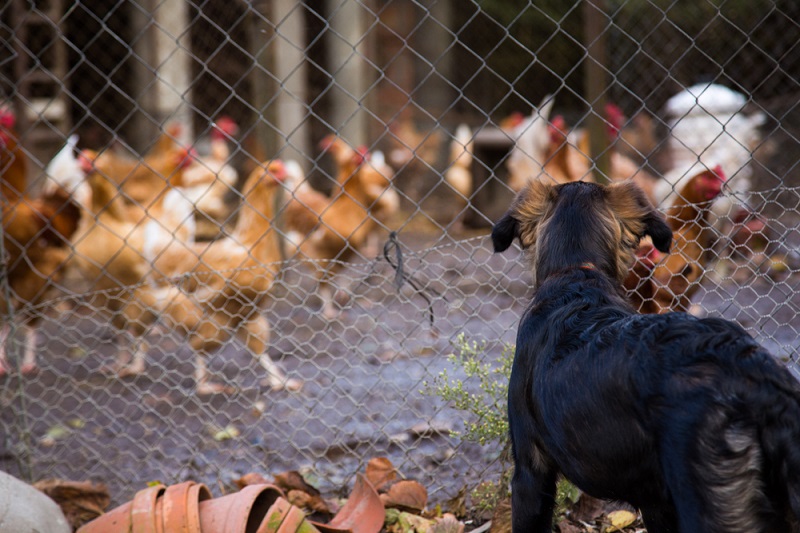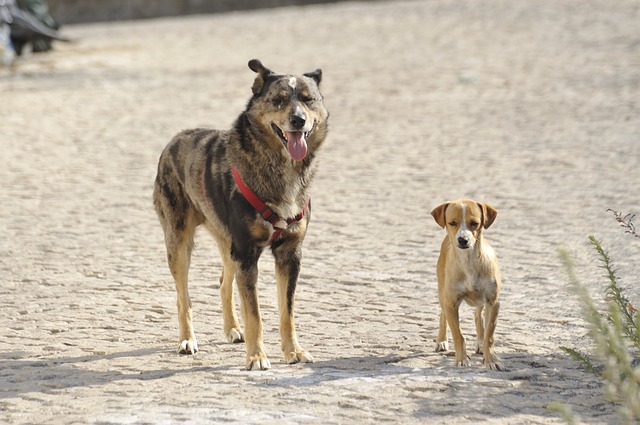
Passion fruit is not edible to dogs. The skin and seeds of ripe passion fruit are poisonous, and their high sugar content poses a health risk to your dog. Find out why giving your dog passion fruit is not a good idea.
Table of Contents
Can Pets Consume Passion Fruit?
Passion fruit is not edible to dogs. The tropical fruit known as passion fruit is fragrant, sour, and sweet, and it is produced by the passion fruit vine. Although the flesh of the passion fruit is not dangerous, the fruit is high in sugar, and the cyanide found in the seeds, rind, and peel can upset your stomach and create major health problems. The risks outweigh the health advantages, even though the fruit contains minerals that can decrease blood pressure and strengthen your dog’s immune system.
Consider giving your dog passion fruit if you’re searching for a novel treat. Why not use passion fruit as a reward for your dog, as you’ve probably heard of other pet owners doing? It turns out that giving your dog passion fruit might have highly negative effects, therefore you shouldn’t include it in your dog’s usual diet.
Although passion fruit in large amounts can harm your dog’s health, the fruit itself is not harmful to dogs. Continue reading to find out more about which fruits are acceptable to give dogs and how passion fruit affects them.
How Much Can Your Dog Eat of Passion Fruit?
You should only give your dog very little amounts of passion fruit if you were going to feed it. It would be imperative that they be perfectly ripe and seedless.
Since this isn’t very practical or realistic, we advise against giving your dog passion fruit.
The Perils of Giving Your Dog Passion Fruit
Given that passion fruit is a rich source of antioxidants, vitamins, and other minerals, it is reasonable to assume that dogs would also benefit from a small amount of this fruit. Passion fruit provides several health benefits for people. That isn’t the case, though. Among the potential negative effects of consuming passion fruit are:
Choking: Your dog may be at risk of choking due to the seeds found in passion fruit. Cutting it into little pieces can be challenging, and dogs find it difficult to ingest large parts. Additionally, there could be a choking hazard from the rind.
Reactions to food: Eating passion fruit can have an adverse effect on your dog if they have a food allergy. Breathing problems, stomach distress, and edema are among the symptoms.
Cyanide poisoning: Passion fruits with high cyanogenic glycoside content are not yet ripe. In a similar vein, passion fruit seeds contain cyanide. A serious medical disease known as cyanide poisoning can result in convulsions, rapid heartbeat, breathing difficulties, stomach problems, and even death.
What to Do if Your Dog Has Eaten Passion Fruit

Dogs cannot be poisoned by the flesh of passion fruit, but cyanide poisoning is a serious risk. You need to get your dog checked out by a veterinarian right away if it ate any passion fruit. It’s better to be safe than sorry, even if there’s a chance your dog won’t suffer any more than a brief tummy discomfort. You won’t have much time to get your dog treated once the symptoms start to manifest if cyanide poisoning is the cause.
Keeping passion fruit out of your dog’s reach and in a secure place is the best defense against it biting its teeth. You will need to take extra care to make sure the dog cannot get into the fruit on the ground if you have a passion fruit tree outside that it can access.
Dogs’ Health Benefits from Passion Fruit
The nutrition facts for passion fruit state that it is rich in protein and has sufficient levels of minerals, vitamins A and C, and B vitamins.
However, your dog can obtain these nutrients from healthier sources that don’t involve the risks associated with passion fruit.
Do You Have Any Concerns? Indeed.
Dr. Kara, a veterinarian, clarifies, “Passion fruit is safe for dogs to eat in moderation. The issue is that cyanide is present in their seeds, just like it is in apple and cherry pits. The other problem is that excessive consumption of even healthful fruits can cause diarrhea because of high sugar and fiber content.”
Since passion fruit contains a lot of seeds, it can be difficult to ensure that you have removed them all for your dog’s safety.
How to Give Passion Fruit to Your Dog
If your dog has a special affection for passion fruit and you want to let him indulge, you will need to prepare it carefully.
Remove the flesh from the rind of the passion fruit using a spoon, and dispose of the rind (ensuring your dog cannot get it due to its toxicity).
The seeds should then be carefully removed and thrown away, once more making sure your dog cannot get to them.
You can then give your dog a little bit of the passion fruit flesh after making sure that it is ripe enough to eat safely. Make it a treat rather than a regular meal component.
Fruits That Dogs Can Eat Without Concern
It is better to stay away from passion fruit when choosing a fruity treat for your dog. Fortunately, you have a wide range of options to select from. To prevent your dog from choking on huge bits, make sure you offer any of these fruits to it in bite-sized portions.

Apples
For dogs, apples are a great treat! Before giving them to your dog, you must take out the seeds and discard the stem, leaves, and core. The seeds must be removed since they contain cyanide, just like the passion fruit.
Bananas
Dogs can safely consume bananas, but only in little amounts because of their high sugar content. Dogs shouldn’t be fed banana peels due to their inability to digest and potential choking hazard.
Cantaloupe
This fruit has a high sugar content, so it should not be given to your dog frequently. However, it is also around 90% water, making it an excellent source of hydration for your dog. Just be sure to remove the rind before feeding small pieces.
Blueberries
An excellent low-calorie treat for dogs that need to watch their weight, blueberries are also a great source of fiber, antioxidants, vitamin C, and phytochemicals.
Arable Fruits
Your dog will enjoy pears as a snack very much. Before feeding, remove the pit, stalks, leaves, and seeds. Canned pears should be avoided since they contain excessive amounts of sugar for dogs. Make sure to remove all of the seeds because they also contain cyanide. Pears include copper, fiber, vitamin C, and vitamin K to your dog’s diet.
Hazardous Fruits
Dogs are poisoned by grapes. One grape has the potential to be lethal. All grapes should be kept out of your dog’s reach because they might induce abrupt or severe kidney failure in canines. Get in touch with your veterinarian right away if you think your dog may have eaten grapes.




